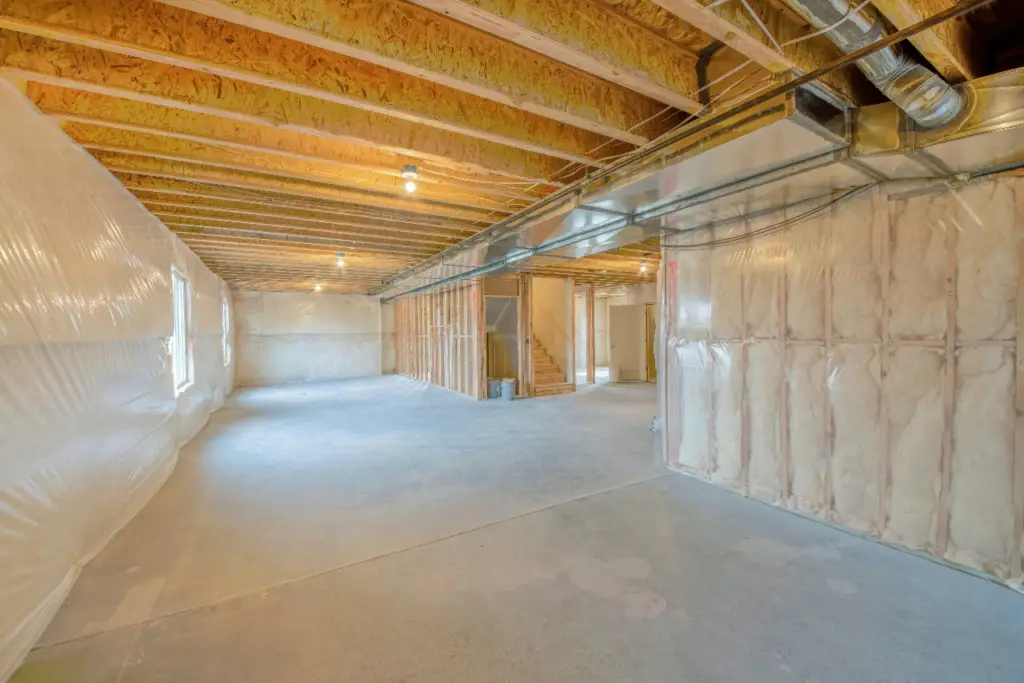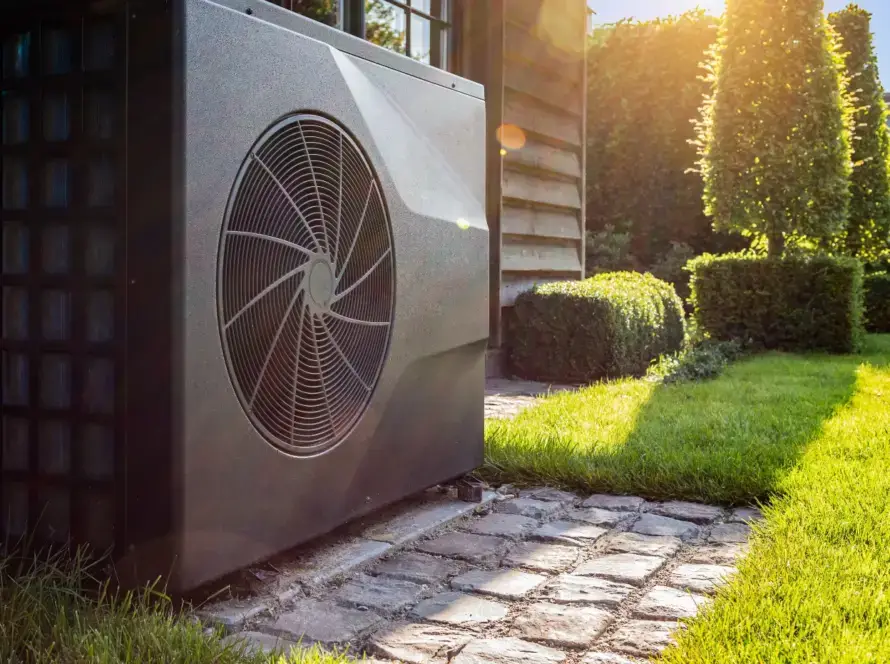If your feet are freezing, your energy bills are rising, or your home just never feels quite comfortable, your basement insulation may be to blame.
At Shoreline Building Performance, we’ve helped hundreds of homeowners across BC improve comfort, cut heating costs, and unlock powerful rebates, simply by upgrading their basement insulation. Whether your space is finished or unfinished, insulating below the main floor can have one of the highest returns on investment of any home upgrade.
We sat down with our insulation experts to answer the most common questions homeowners ask when considering basement insulation in BC, especially with new rebate programs and financing options on the table.
Why Basements Are Energy Black Holes
What are the biggest energy efficiency problems in under-insulated basements and cellar ceilings?
Basements can account for up to 25% of a home’s total heat loss, according to Natural Resources Canada. Under-insulated basements tend to suffer from cold floors, high humidity and moisture problems causing mould growth and musty smells, and sky-high energy bills. Even if you don’t spend time down there, the space acts like a heat sink, pulling warmth from the floors above and forcing your heating system to work overtime.
Insulating cellar ceilings also matters: heat escapes upward and downward, and without proper insulation between floors, you can end up with uncomfortable drafts in rooms that should be warm and cozy.
How much can you save with proper basement wall insulation?
Most homeowners see 10–20% savings on heating bills, with potentially even more savings if their basement was previously uninsulated. That’s hundreds (or even thousands) of dollars back in your pocket every year from your heating and cooling bills from adding insulation to a concrete wall.
Beyond Bills: Benefits of Basement Insulation You Can Feel
What else can basement insulation do for your home?
Upgrading your basement insulation and improving your home’s building envelope offers more than just energy savings:
- Keeps your home warmer in winter and cooler in summer with a more effective thermal barrier
- Reduces indoor humidity and condensation and moisture damage
- Prevents mold, mildew, and air quality issues by improving moisture resistance
- Adds soundproofing between floors
- Makes basements more livable (or rentable!)
- Increases property value in resale markets like Vancouver and Victoria
Does it matter whether your basement is finished or unfinished?
Yes. Unfinished basements are easier and more affordable to insulate because materials can be applied directly to exposed foundation walls and ceilings. For finished basements, other solutions may be needed to insulate behind drywall or in tight cavities — increasing complexity, but still delivering great results for your thermal performance.
Moisture, Mould, and Material Choices
How does insulation help with moisture control and mould prevention?
Insulation isn’t just about warmth and building codes — it also protects against water damage. In BC’s damp climate, materials like rigid foam board and mineral wool resist moisture and help stop condensation on cold walls. When combined with proper sealing and vapour barriers, you create a dry, healthy environment that won’t breed mold or mildew.
What types of basement insulation materials are best walls and ceilings?

- Rigid foam board (XPS/EPS): Ideal for exterior basement walls. Moisture-resistant and high R-value.
- Mineral wool batts: A go-to for cellar ceilings, offering thermal and sound insulation.
- Air/vapour barriers: Used alongside insulation to stop moisture from migrating through walls and ceilings.
While many contractors recommend spray foam insulation, Shoreline Building Performance typically uses insulation materials such as rigid foam board insulation, fiberglass batt insulation, or blown-in insulation. You can read more about Shoreline’s choice of materials here.
How to Pay Less: Rebates & Financing
What rebates are available for basement insulation in BC?
The CleanBC Better Homes Rebates offers up to $1,800 for insulating your basement walls, depending on size and R-value added.
What if you qualify for rebates?
The CleanBC Energy Savings Program (formerly the Income Qualified Program) offers significant support. If you qualify, approved contractors like Shoreline can perform insulation upgrades with minimal to no upfront cost, the rebate is applied directly to the project.
What You Need to Get Started
Why work with a Registered Energy Advisor?
Registered Energy Advisors (like the ones on our team at Shoreline) are essential for:
- Rebate eligibility: Most programs require an advisor to validate and document the upgrades.
- System optimization: Advisors assess your entire home and recommend where upgrades will have the most impact.
- Strategic planning: Many homeowners assume they need solar first — but often, basement insulation delivers better ROI up front.
Are there upfront costs to apply for rebates?
- If you’re income-qualified: No. Your upgrade is typically fully covered by the CleanBC program.
- If not: You’ll pay for the upgrade, then apply for the rebate with Shoreline’s help. Many home energy evaluations are subsidized or partially reimbursed.
Final Advice from the Experts
What’s the first step if you want to improve your insulation and cut costs and prevent energy loss?
Start with a home energy evaluation. Our Registered Energy Advisors will assess your home’s current efficiency, identify heat loss points, and guide you through the rebates and financing available.
In most cases, basement insulation is one of the first and most impactful upgrades to tackle. It’s a powerful step toward year-round comfort, lower utility bills, and a greener footprint — with real financial returns.
What’s the first step if you want to improve your insulation and cut costs and prevent energy loss?
Start with a home energy evaluation. Our Registered Energy Advisors will assess your home’s current efficiency, identify heat loss points, and guide you through the rebates and financing available.
In most cases, basement insulation is one of the first and most impactful upgrades to tackle. It’s a powerful step toward year-round comfort, lower utility bills, and a greener footprint — with real financial returns.
Ready to Insulate Smarter?
At Shoreline Building Performance, we combine building science, rebate expertise, and hands-on insulation services to help you save energy, money, and stress. Whether you’re planning a renovation or just want to stop heat loss, we’re here to help.



